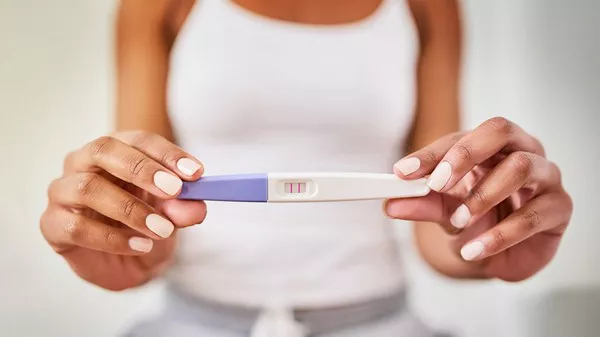Experiencing a miscarriage can be emotionally devastating for couples who are trying to conceive. It is a loss that often brings grief and uncertainty, leaving many wondering when it is safe to attempt pregnancy again. The decision to try for conception after a miscarriage is deeply personal and varies from one individual to another. In this article, we will explore the factors that influence the timing of trying to conceive after a miscarriage, the physical and emotional aspects of recovery, and professional recommendations to help couples make informed decisions during this delicate period.
The Physical Recovery Process:
After a miscarriage, the body goes through a natural healing process to recover from the loss. The timing of ovulation and the return of fertility can differ from woman to woman. Typically, the menstrual cycle resumes within four to six weeks after a miscarriage. However, it’s essential to understand that individual factors, such as the gestational age at the time of miscarriage and hormonal changes, can affect the duration of recovery.
Emotional Healing and Coping:
The emotional impact of a miscarriage should not be underestimated. Coping with grief and loss is a significant aspect of the healing process, and rushing into trying to conceive again may not allow for adequate emotional recovery. It is essential for couples to take the time they need to grieve, seek support from loved ones, or even consider counseling to process their emotions before embarking on another pregnancy journey.
Seeking Guidance from Healthcare Professionals:
The decision of when to try to conceive again after a miscarriage is best made with the guidance and support of healthcare professionals. Obstetricians, gynecologists, or fertility specialists can provide personalized advice based on an individual’s medical history, the cause of the miscarriage, and any potential underlying health issues that may need to be addressed before attempting pregnancy again.
Understanding the Cause of the Miscarriage:
Miscarriages can occur due to various reasons, such as chromosomal abnormalities, hormonal imbalances, uterine abnormalities, or maternal health issues. Identifying the cause of the miscarriage is crucial, as it can influence the timing of trying to conceive again and inform any necessary medical interventions or lifestyle changes.
Recurrent Miscarriages:
If a woman experiences two or more consecutive miscarriages, it is classified as recurrent miscarriage. In such cases, thorough medical evaluation becomes even more essential. Healthcare providers may conduct additional tests to investigate potential underlying factors and develop a comprehensive plan to address any issues before attempting pregnancy again.
Physical Readiness for Pregnancy:
It’s important for a woman’s body to be physically prepared for another pregnancy after a miscarriage. A well-balanced diet, regular exercise, and a healthy lifestyle can contribute to overall reproductive health. Folic acid supplements are also recommended, as they play a vital role in preventing neural tube defects in the developing fetus.
Emotional Readiness for Pregnancy:
In addition to physical readiness, emotional preparedness is equally vital when trying to conceive again after a miscarriage. The fear of another loss or lingering grief from the previous miscarriage can be challenging to navigate. Open communication with your partner about your emotions, hopes, and concerns can foster a supportive environment during this time.
Waiting for One Full Menstrual Cycle:
Many healthcare professionals advise waiting for one full menstrual cycle after a miscarriage before attempting pregnancy again. This waiting period allows the body to heal, the menstrual cycle to regulate, and the endometrial lining to prepare for a healthy pregnancy.
How Long Should You Wait?
The appropriate waiting time before trying to conceive after a miscarriage can vary depending on individual circumstances. In cases where the miscarriage was early and uncomplicated, some couples may choose to try again after one or two menstrual cycles. On the other hand, couples who have experienced a later-term miscarriage or have underlying health conditions may need to wait longer, sometimes up to six months or more.
Emotional Considerations:
Apart from the physical aspects, the emotional readiness of both partners is crucial. Grieving is a highly individual process, and rushing into another pregnancy without adequate emotional healing may lead to increased stress and anxiety during the subsequent pregnancy.
Coping Strategies and Support:
During the waiting period, couples can focus on coping strategies and seeking support to help them process their emotions and cope with the loss. Support groups, counseling, or therapy can provide a safe space to express feelings, share experiences with others who have been through similar situations, and gain valuable insights into managing emotions during the healing process.
Factors to Discuss with Healthcare Professionals:
When considering trying to conceive after a miscarriage, couples should discuss the following factors with their healthcare professionals:
Medical history and any underlying health conditions
The cause of the miscarriage, if known
The results of any diagnostic tests performed after the miscarriage
Recommended wait time based on individual circumstances
Fertility and ovulation tracking advice
Potential lifestyle changes or medical interventions to improve chances of a successful pregnancy
Conclusion:
Deciding when to try to conceive again after a miscarriage is a deeply personal and complex decision. It requires a balance of physical readiness, emotional healing, and professional guidance. While some couples may feel ready to try again after one menstrual cycle, others may need more time to grieve, heal, and prepare both physically and emotionally. Seeking support from healthcare professionals, along with open communication and emotional support from each other, can help couples navigate this delicate period and make informed decisions about their future fertility journey. Remember that there is no one-size-fits-all approach, and the most important thing is to prioritize both physical and emotional well-being during this challenging time.


